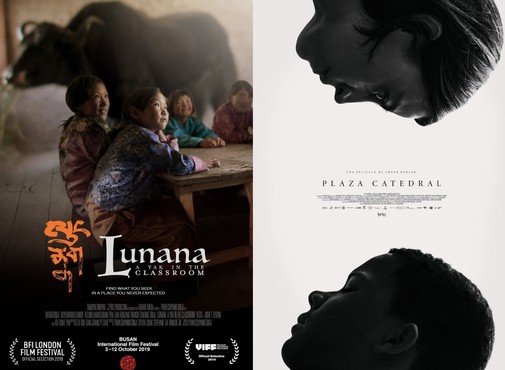Review: South Korea's Oscar Hopeful "Decision to Leave"
 Friday, October 14, 2022 at 11:41PM
Friday, October 14, 2022 at 11:41PM  © MUBI
© MUBI
A woman stands in a room, alone. Wallpapered motifs encircle her in a swirl of blue-green something. Are they waves or mountaintops, those shapes repeated into infinity? Maybe they're both, maybe neither. Maybe they're everything.
According to a Confucian proverb, the wise man admires water, the kind man admires mountains. Or maybe it's benevolence and virtue, some other translation across languages. Two complementing sides of the same person, perhaps a binary of human natures, these words reveal more than their scholarly meaning – at least, they do in Park Chan-wook's Decision to Leave. Ideas of duality percolate throughout the work, as does the attempt to understand the unfathomable reality of another person. We try to find order in chaos, logic in that which has none, pursuing an understanding that will always be out of grasp. Every single one of us is a mystery to others, and to try to transcend the impossibility of knowing someone else is a fool's errand, the most beautiful thing in the world, ecstasy holding hands with despair. It's love…





